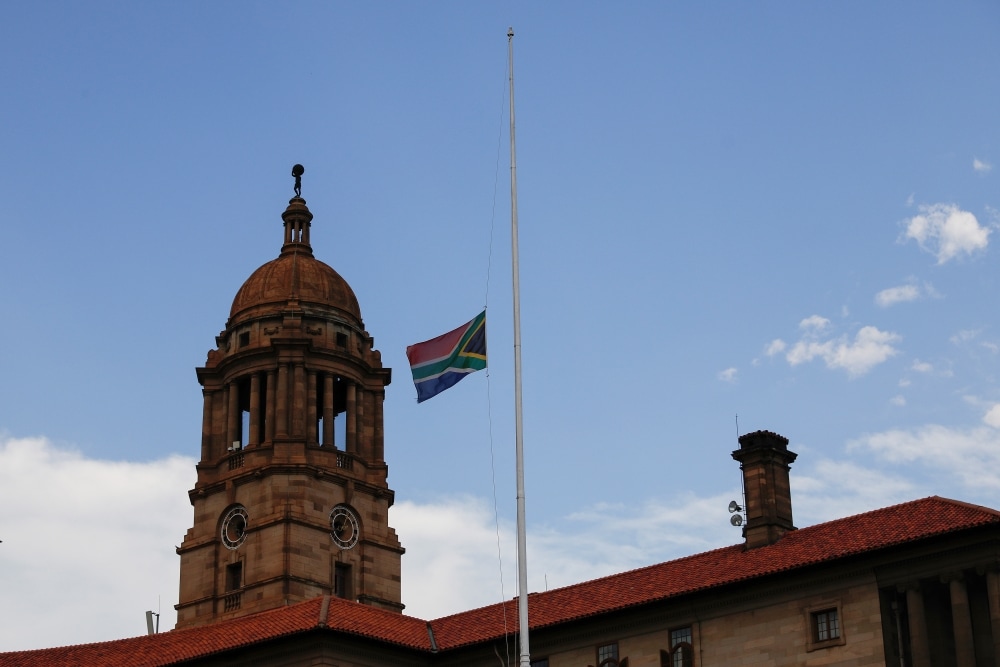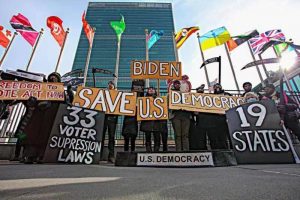Changing political rules of the game are the order of the day, and some key aspects are emphasized.
Coalition politics
Coalitions are described as “a grouping of actors brought together either through the perception of a common threat, or through the recognition that their goals cannot be achieved by working separately“. Sometimes this is referred to in politics as “the partnership of unequals.”
Where alliances are associated with cooperation before elections, coalitions are characterized by cooperation after elections. With the conclusion of the 2021 local elections, numerous parties were caught with the proverbial pants on their knees and indeed coalitions had to be closed almost overnight. Against the backdrop of patterns of political instability, power grabs, corruption and “bribery”, deficient social cohesion and fragmentation, historical mistrust, and a deficient culture of cooperation, coalition politics (or attempts in this regard) have mostly failed miserably.
In addition to the absence of legislation and structures to effectively manage coalition processes, the lack of a cooperative culture as a basis for coalition formation was largely absent, and coalition politics sometimes had extremely negative outcomes. These include patterns of instability, lack of decision-making ability, opportunistic and subversive (sometimes mafia-like) actions of political parties or leadership.
Although not exclusively, it was especially the metropolises including Tshwane, Johannesburg, Ekurhuleni and the Nelson Mandela metropolis that reflected these challenges par excellence.
The above was the background for a National Dialogue on Coalition Government which was held on 10 August in Cape Town under the leadership of Deputy President Paul Mashatile on coalition politics, as well as the Multiparty Charter for South Africa which was recently concluded in Kempton Park between seven opposition parties (DA, IVP, FF Plus, ActionSA, UIM and SNP) are negotiated. Civil society institutions and other interest groups were also invited to the latter discussion to give it a kind of UDF format in order to approach the 2024 elections from a stronger foundation.
The mentioned parties will work together as an alliance based on those principles that have been politically agreed upon, and if a majority is achieved in the 2024 elections, they will govern in coalition. These developments are an indication of changing political rules and the harsh reality of the likely inevitability of coalition politics (national and provincial) after the 2024 elections, against the background of shifting support bases, as indicated in recent opinion polls.
Opinion polls
As indicated earlier, opinion polls indicate that the ANC’s achievement of an absolute majority at national level, as well as in some provinces, is reaching a saturation point. In addition to the aforementioned figures, the Social Research Foundation presented the support base of parties in March 2023 as follows: ANC (45.9%), DA (23.3%), EFF (8.4%), IVP (6.1 %), FF Plus (2.2%) and ActionSA (3.1%).
Read in conjunction with the other polls, it is clear that:
- The political environment is changing and that a reconstitution of the political spectrum is currently on the agenda;
- The possibility exists that the ANC will not achieve an absolute majority nationally;
- Coalition politics defines a new set of rules to which parties and groupings will have to adapt;
- Provincial dispensations can function differently (with other constellations of political actors), at separate provincial levels but also with regard to the relationship at national level. This can create conflicting situations, for example what is required provincially to keep the ANC in power in KZN may differ from the coalition needs in other provinces or possibly at the national level (complexity and asymmetry therefore replace linear political governance based on one-party dominance with the potential for patterns of political instability).
An important variable that must be read in conjunction with the above is the potential implications of the amendments to the electoral law as recently passed.
An amended Electoral Act
At national and provincial level, a proportional list system is used as an electoral system. According to this, parties are represented by submitting candidate lists in order of priority to the Independent Electoral Commission (IEC). After the election, candidates acquire positions in legislative institutions (legislators or the National Assembly) according to the percentage of support of a particular political party.
Although the system has numerous advantages, there are three disadvantages in particular that can be pointed out in relation to the existing electoral system, namely party elites are decisive in appointing candidates on party lists, individuals cannot be elected on a personal basis, and it is more difficult to apply accountability (citizens to representative) within this system.
Following the 2019 elections, the New Nations Movement questioned the constitutionality of the electoral law and associated electoral system in the Constitutional Court on the grounds that individuals are prevented from participating directly in politics. They won the case. A ministerial advisory committee was appointed to amend the electoral law, exceeded its target time twice and an amended electoral law was finally presented for approval.
However, the amended electoral law brought several objections to the surface:
- Different rules apply for political parties versus individuals regarding the right to representation (individuals may only stand for 50% or 200 members of the National Assembly); and must collect more signatures in percentage terms as proof of support;
- In conjunction with the former, there is an uneven political playing field that favors parties at the expense of individuals;
- When individual candidates earn more votes than the specified quota, the votes are lost, must be recalculated, or discounted on a different basis (the so-called “overhang seats” is at issue here);
- The proportional list system (which already has to accommodate a large number of parties) becomes very complicated with the addition of individual names which can make the system complicated and difficult to manage.
On 29 August 2023 (about 8-9 months before the next election) the Association for Independent Candidates and the One South Africa Movement placed the proposed amendment bill (as recently signed by the president) before the Constitutional Court on an urgent basis in an attempt to question the constitutionality of this.
The specific focus of criticism was the uneven political playing field referred to above. The case is currently being heard and at the time of writing this document, the decision was still pending. What is currently happening is that numerous institutions, including the Helen Suzman Foundation, the Inclusive Society Institute and other academic and other think tanks, have made submissions and/or recommendations regarding an improved electoral system.
Whatever the outcome of the court case, a few months before the most difficult and probably the most contested election (within an environment of great political uncertainty, economic decline and social challenges) the rules of the proverbial political game have not even been finalized. This makes the challenge for the IEC all the more difficult to achieve a free and fair election next year.
The eve of the 2024 election
From the foregoing, the following conclusions can be drawn regarding the state of the larger political environment on the eve of the election:
- In the field of politics, there is an established pattern of increasing political instability and increased security risks associated with the application of a weakening state and the decay of state and semi-state institutions. The decay and dysfunctionality is extensive and means that the state very often can no longer carry out core functions successfully;
- Support-wise, the ANC is in its worst position before any election since 1994, with the potential for increasing conflict and violence in the build-up (and also in terms of the outcome) of the 2024 election. Adversaries for support losses include populist legislation; race-driven politics and the elaboration and consolidation of patronage politics;
- An economy that does not grow due to a complicated group of reasons is characteristic on the eve of the election. The origin of this is ideological, regulatory and political in nature. Deteriorating infrastructure, reasons related to safety and security, mounting public debt, as well as the collapse of local government are also fundamental to this problem and can be difficult to reverse in the short term. (Regardless of contrary expectations, the economic situation did not improve during the Ramaphosa era, but rather worsened in most respects!);
- Social challenges including poverty, unemployment and inequality are on the rise, along with service delivery including the provision of water, electricity and sanitation which is deteriorating or even collapsing in many environments;
- A changing international context with major political risks and challenges;
- The post-tipping point context in South African politics means the reconstitution of the political spectrum, the reality of coalition politics and with it a changing set of political rules that must be taken into account.
To summarize, South Africa is facing its biggest changes since 1994, with great uncertainties on the way forward. The status quo is not sustainable and the question is not whether there will be change, but rather what form it will take, what time frame is involved, and especially what the ruling elite’s response to a potentially debilitating situation will be.
This makes the 2024 election the most important election since the establishment of a new constitutional dispensation, with great risks especially for the ruling ANC and what politically speaking can result from it.
This article is the second in a series of three on the 2024 national and provincial elections, initially written for the Afrikanerbond.








